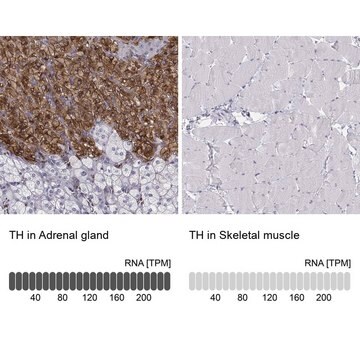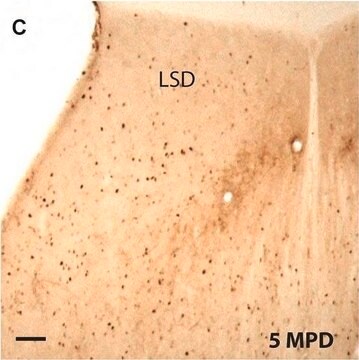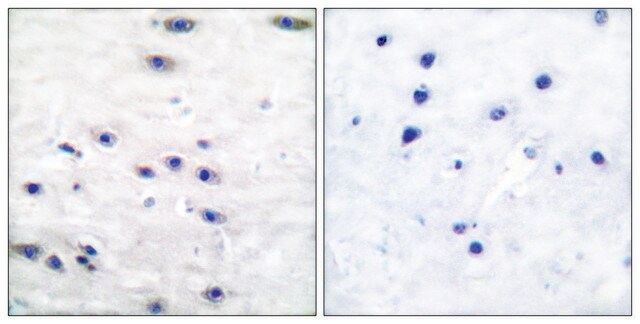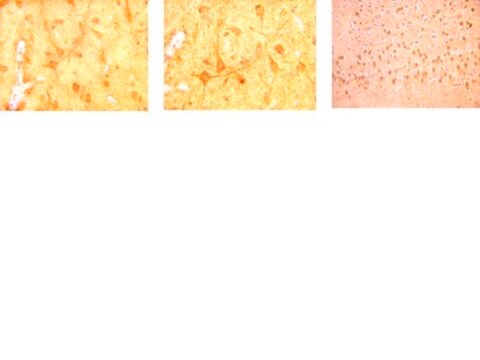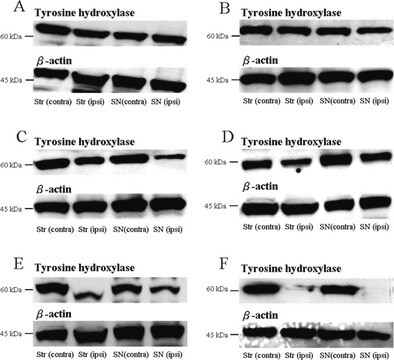SAB4503789
Anti-phospho-Tyrosine Hydroxylase (pSer40) antibody produced in rabbit
affinity isolated antibody
About This Item
Produtos recomendados
fonte biológica
rabbit
Nível de qualidade
conjugado
unconjugated
forma do anticorpo
affinity isolated antibody
tipo de produto de anticorpo
primary antibodies
clone
polyclonal
Formulário
buffered aqueous solution
peso molecular
antigen 58 kDa
reatividade de espécies
human, mouse, rat
concentração
~1 mg/mL
técnica(s)
ELISA: 1:40000
immunohistochemistry: 1:50-1:100
western blot: 1:500-1:1000
nº de adesão NCBI
nº de adesão UniProt
Condições de expedição
wet ice
temperatura de armazenamento
−20°C
modificação pós-traducional do alvo
phosphorylation (pSer40)
Informações sobre genes
human ... TH(7054)
Descrição geral
Imunogênio
Immunogen Range: 41-90
Ações bioquímicas/fisiológicas
Características e benefícios
forma física
Exoneração de responsabilidade
Não está encontrando o produto certo?
Experimente o nosso Ferramenta de seleção de produtos.
Código de classe de armazenamento
10 - Combustible liquids
Classe de risco de água (WGK)
WGK 1
Ponto de fulgor (°F)
Not applicable
Ponto de fulgor (°C)
Not applicable
Escolha uma das versões mais recentes:
Certificados de análise (COA)
Não está vendo a versão correta?
Se precisar de uma versão específica, você pode procurar um certificado específico pelo número do lote ou da remessa.
Já possui este produto?
Encontre a documentação dos produtos que você adquiriu recentemente na biblioteca de documentos.
Nossa equipe de cientistas tem experiência em todas as áreas de pesquisa, incluindo Life Sciences, ciência de materiais, síntese química, cromatografia, química analítica e muitas outras.
Entre em contato com a assistência técnica

